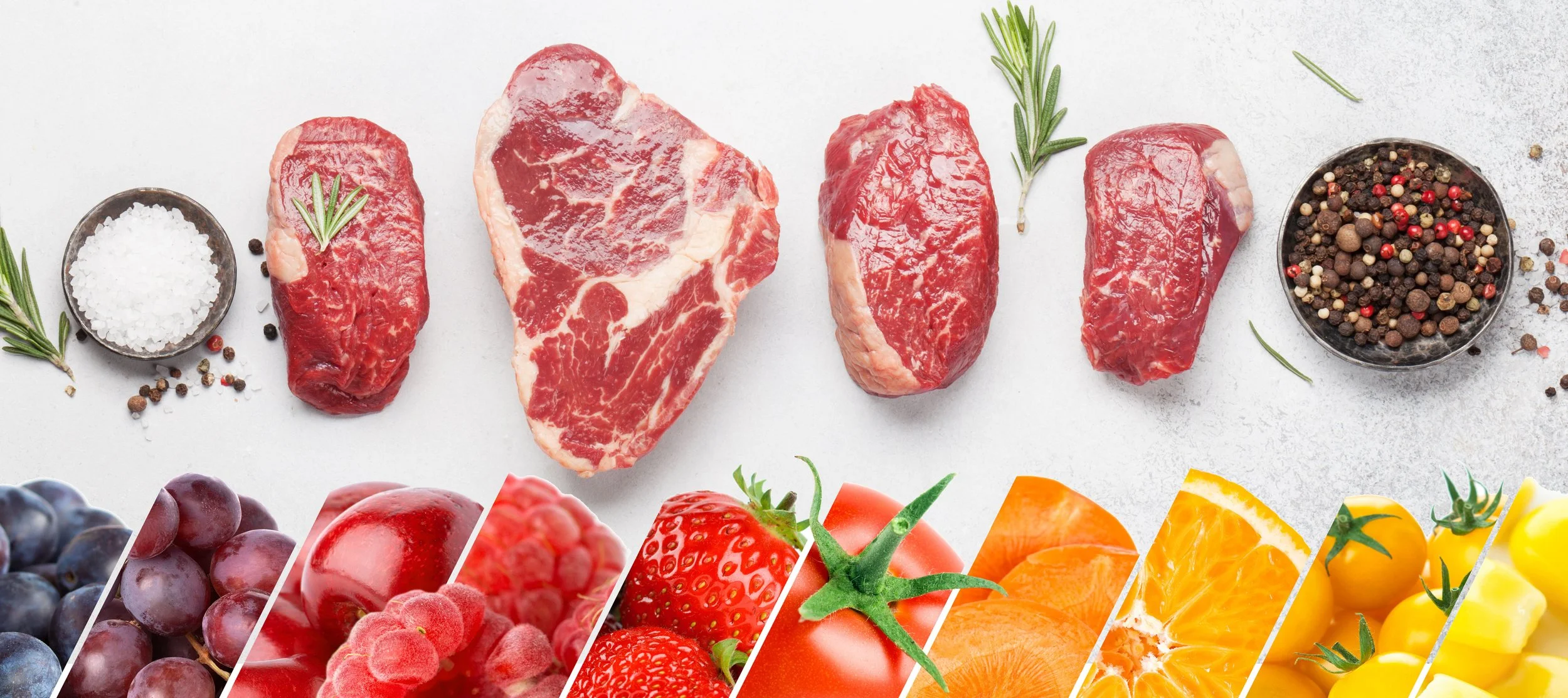Fruit and Protein: Perfect Partners
Sugar is bad and fruit has sugar, right? Therefore fruit is bad? If only it were that simple, but if you eliminate all fruit from your weight loss plan then you’ll miss out on an essential source of vitamins, minerals, fiber and antioxidants. Consuming your daily minimum of fruit can:
Boost immunity and protect against cancer and diabetes by providing antioxidants which reduce free radicals in your body’s cells. Scientists don’t completely understand how free radicals do their dirty work, but they do know that when unstable oxygen atoms bond with unpaired electrons they cause oxidative stress. The stress on your cells causes aging, including those wrinkles we all hate to see in the mirror. Worse, they are also are connected to dementia, heart disease, arthritis, and Parkinson’s.
Provide appetite stabilizing fiber. All those pesky seeds in blackberries and the chewy peel on an apple are packed with fiber, which digests slowly and slows down the absorption of glucose. With fewer sugar spikes, your body resists the appetite spikes that cause you to get hungry again an hour after eating sugary treats. Plus fruit’s soluble fiber has been shown to reduce cholesterol.
Feed your body necessary vitamins. Fruit is an excellent source of vitamin C, folic acid, potassium, thiamin, riboflavin, vitamin B-6, and vitamin A.
But as nutritionally beneficial as fruit is, the glucose in fruit is still a sugar and is defined as a simple carbohydrate just like the sucrose in sweets. Your weight loss plan will perform better if you can slow the glucose’s absorption into your bloodstream. We’ve already mentioned the role fiber plays in controlling blood sugar but another secret weapon against sugar spikes—and one of Professional Weight Management’s favorite weight loss super heroes—is protein.
What does protein do? It slows your digestion and helps balance blood sugar since protein is made from complex strings of amino acids, requiring specialized enzymes to break them down. Red meat is particularly slow to digest since it’s more protein dense and frequently holds more fat than does chicken or fish. Red meat can take days to move through your digestive system, leading to heartburn and bloating, and the extra fat in red meat adds calories and cholesterol. Your weight loss plan should focus on leaner protein sources such as white-fleshed fish, low-fat yoghurt, skinless chicken breast, egg whites, and protein fortified foods such as Professional Weight Management’s high quality snacks.
If you do choose red meat as your protein source, eating it with fruit can aid in digestion and speed up your meal’s movement through your digestive tract. Some fruits contain natural digestive enzymes called proteases, which help break down the protein in red meat into amino acids. Others contain lipase, which helps break up fat molecules. As fiber rich foods, fruit also contributes to a healthy gut to counter the red meat-induced bloat.
One of the most common questions we get at Professional Weight Management is about why we suggest eating fruit and red meat together. Here’s the answer from Tammi:
“As we’re having the wonderful fruits this summer, you want to make sure you eat it with a protein to keep it from turning to pure sugar and that way your body knows how to distribute it differently. Also, you probably want to eat it earlier in the day. That way your body can get rid of it before you go to bed at night.”—Tammi Sparkman, Professional Weight Management owner
Tammi and the team answer your question on why to eat fruit with red meat.


